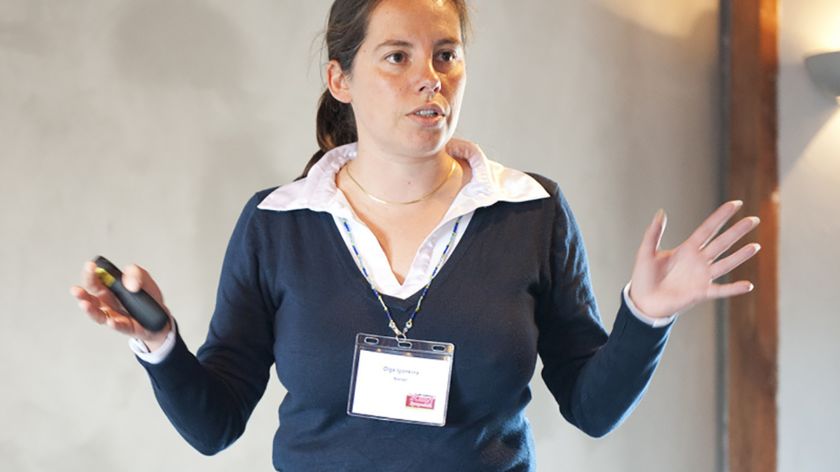Obituary: the professor who hacked the ATLAS particle detector
-
 Foto: Radboud Universiteit
Foto: Radboud Universiteit
Olga Igonkina, professor by special appointment in Particle Physics, died on 19 May, aged 45. Igonkina was a passionate scientist, searching for answers about the creation of the universe. One of her striking contributions was 'hacking' the ATLAS particle detector at CERN.
Colleagues were unaware of the gravity of Olga Igonkina’s health problems until shortly before her death. ‘She didn’t speak of I,’ says Associate Professor Frank Filthaut, her colleague at Radboud University. ‘She preferred to talk about her research. I believe she found her personal problems less relevant.’
Universe
Igonkina was a senior researcher at Nikhef (national institute of subatomic physics) and was involved in the ATLAS experiment at CERN in Switzerland. She started work as a professor by special appointment at Radboud University in 2015. A year later, she was awarded a prestigious VICI grant by the NWO (Dutch organisation for scientific research).
Born in Russia, Igonkina was committed to science in its most fundamental form. Like so many other researchers, she wanted to contribute to answering the ultimate question: how was our universe created? During the big bang, 13.8 billion years ago, our universe consisted of equal quantities of matter and antimatter. Given this fact, how is it possible that now mainly matter is observed?
‘Next to her power of perseverance, her creativity was her greatest strength.’
Filthaut emphasises the worth of Igonkina’s contribution during the last ‘run’ of the ATLAS particle detector, which closed down last year. ‘Her contribution was significant; by hacking the detector, she made it possible to collect data to which the experiment would otherwise have had no access.’
Igonkina implemented groundbreaking improvements to ATLAS, by developing and testing supplementary electronics, an achievement which won her an ATLAS outstanding achievement award. According to Filthaut, next to her power of perseverance, Igonkina’s creativity was her greatest strength.
Experimental course
At Radboud University, the professor by special appointment was involved in the setting up of an experimental course for Master’s students, in which they had to build their own detector. ‘Not exactly a piece of cake,’ Filthaut points out. ‘But the students really appreciated Olga’s enthusiasm and passionate supervision.’ A colleague will take over Olga’s duties for this academic year.
Olga’s funeral took place last Friday. ‘All those who spoke mentioned her power of perseverance,’ says Filthaut. ‘I found it moving to see how unanimous everyone was about Olga’s qualities.’
Olga leaves behind her husband and Nikhel colleague Wouter Hulsbergen, and their two children.




Amir schreef op 5 juli 2019 om 19:19
Rest in Peace Olga.